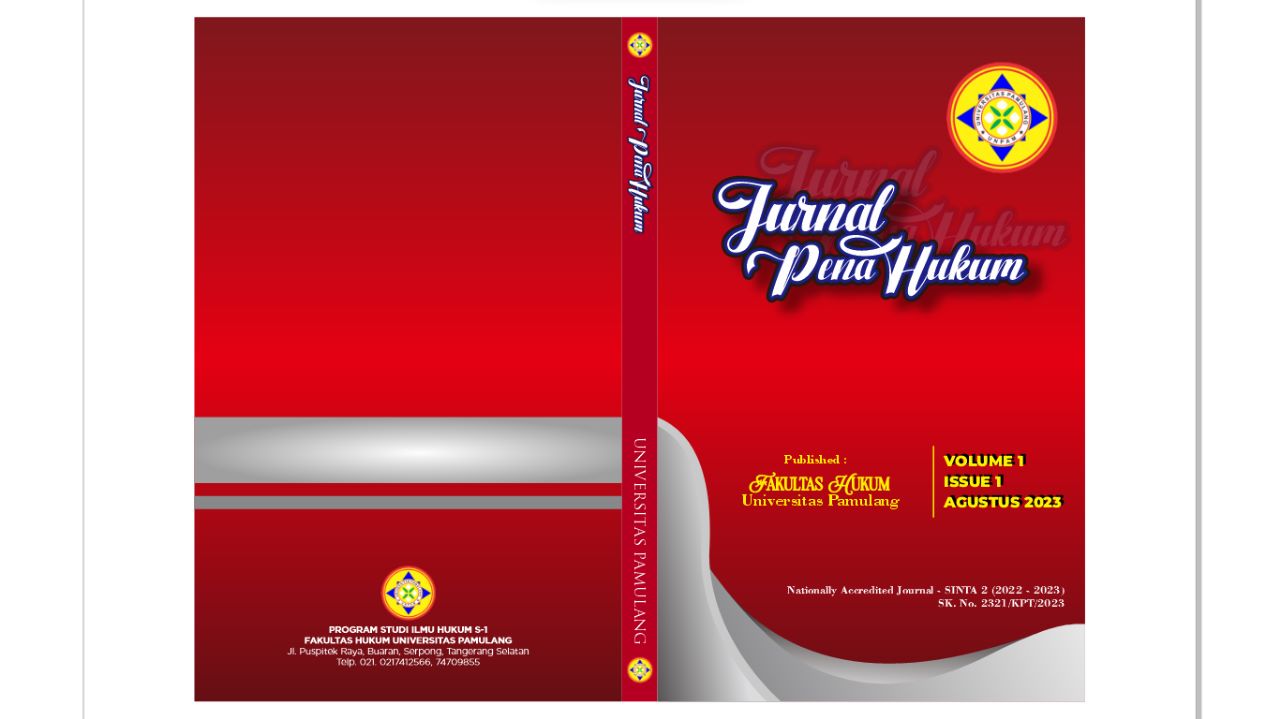PERLINDUNGAN HUKUM ATAS DATA KONSUMEN DALAM PINJAMAN MELALUI APLIKASI KREDIT ONLINE
Abstract
With regard to the use of information technology and innovation in the financial services sector in Indonesia, there are currently significant developments. Various financial services that utilize information technology or what is often referred to as Financial Technology (Fintech) have become commonplace in society, both those offered by financial institutions overseen by the Financial Services Authority hereinafter referred to as OJK and those offered by start-up companies (companies which have not been registered and supervised by OJK). Fintech has been increasingly accepted by the public because it can provide a variety of services that are relatively attractive, easy to use, and comfortable for consumers to use. This research is a normative juridical research (Legal Research) with statutory, conceptual and case approaches. normative juridical namely finding the truth of coherence, are there legal rules in accordance with legal norms and are there norms in the form of orders or prohibitions in accordance with legal principles, and whether actions (act) someone according to legal norms (not just according to legal rules) or legal principles, then conclusions are drawn that are useful for answering the problem formulation in this study. The results of this study can be described, namely Based on the results of the research several discussion results are obtained: First Legal protection for users of Fintech Peer to Peer Lending product services, especially for lenders to increase the trust of modern society in order to improve capital requirements that are difficult to enter the market in Banking Financial Institutions . Regulations that have been issued regarding Peer to Peer Lending until now are the Financial Services Authority Regulation Number 77/POJK.01/2016 concerning Information Technology-Based Borrowing and Borrowing and SEOJK Number 18/SEJOK.01/2017 concerning Governance and Risk Management of Information Technology in Information Technology-Based Borrowing and Borrowing Services have not been able to reach legal protection interests for users of this service. Apart from that, in the Financial Services Sector Consumer Protection regulations regulated in POJK Number 1/POJK.07/2013 have not been able to reach the peer to peer lending market because there are no rules stating that peer to peer lending is included in consumer protection regulations in the financial services sector. Second, the legal protection of personal data has been regulated in Article 26 of the ITE Law. In particular, the protection of borrowers' personal data in online loan services is regulated in POJK No. 77/POJK.01/2016 concerning Information Technology-Based Borrowing and Borrowing Services, which is emphasized in Article 26 that the operator is obligated and responsible for maintaining the confidentiality, integrity and availability of users' personal data and in its utilization must obtain approval from the owner of personal data unless otherwise specified by statutory provisions. Sanctions for violations of personal data which include defamation, are regulated in Article 45 of the ITE Law in the form of criminal sanctions. In addition to criminal sanctions, this is specifically regulated in Article 47 paragraph (1) POJK No. 77/POJK.01/2016 namely administrative sanctions, in the form of written warnings, fines, restrictions on business activities, and revocation of permits
Downloads
Published
Issue
Section
License
Copyright (c) 2023 Fakultas Hukum Universitas Pamulang

This work is licensed under a Creative Commons Attribution-ShareAlike 4.0 International License.
Penulis yang artikelnya diterbitkan pada Jurnal Pena Hukum (JPH) ini menyetujui persyaratan berikut:
Penulis memiliki hak cipta dan memberikan hak jurnal untuk publikasi pertama dengan karya yang secara simultan dilisensikan di bawah Creative Commons Attribution License yang memungkinkan orang lain untuk berbagi karya dengan pengakuan kepengarangan karya dan publikasi awal dalam jurnal ini.
Penulis dapat mengadakan perjanjian kontrak tambahan yang terpisah untuk distribusi non-eksklusif versi jurnal yang diterbitkan dari karya tersebut (misalnya, mempostingnya ke repositori institusional atau menerbitkannya dalam sebuah buku), dengan pengakuan atas publikasi awalnya di jurnal ini.
Penulis diizinkan dan didorong untuk memposting pekerjaan mereka secara online (mis., Dalam repositori institusional atau di situs web mereka) sebelum dan selama proses pengajuan, karena dapat menyebabkan pertukaran yang produktif, serta kutipan yang lebih awal dan lebih besar dari karya yang diterbitkan. Lihat (The Effect of Open Access).


